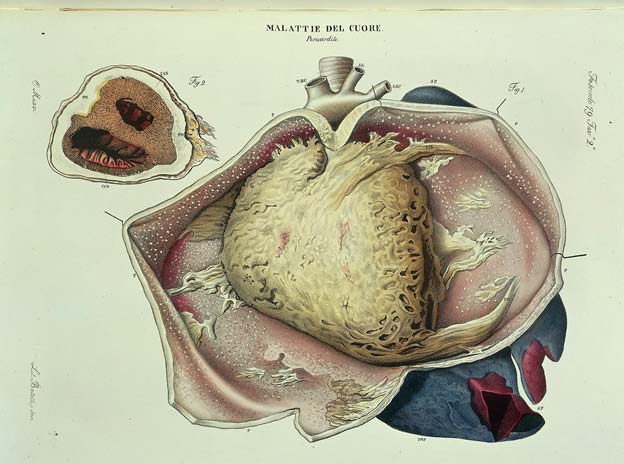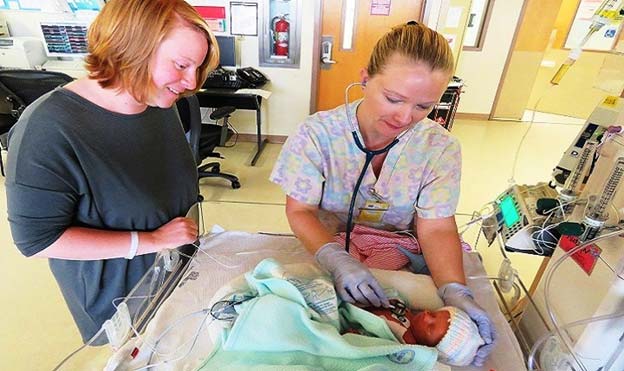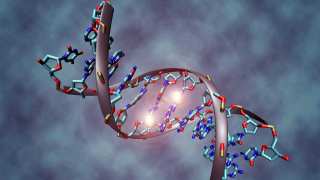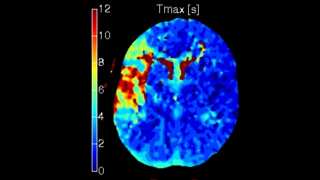Birth defects can be any abnormal developments to fetuses or infants that result in malformation, retardation, other intellectual or physical disabilities, and sometimes, even leading to death. 150,000 babies born in the United States each year have congenital birth defects.
Among these numbers, 1% of births per year are affected by CHDs (congenital heart defects), making it the most common type of birth defects.
In the past, there have not been many studies showing a correlation between congenital heart defects in children and maternal cardiac health.
Therefore, researchers at the McGill University and the University of Montreal’s Hospital Research Center investigated further and found that mothers of infants born with heart defects could be predisposed to cardiovascular disease (CVD), later in life.
Their paper was recently (April 2018) published in American Heart Association’s Circulation journal.
Heart Defects in Babies = CVD Risk in Mothers?
The experiment was conducted in Quebec, Canada, where 1,084,251 women who had offspring between 1989 and 2013 were studied. Among these participants, the researchers identified mothers of infants with some form of heart defects. These women were tracked over a period of time. 25-year follow-ups were conducted to check for any signs relating to cardiovascular health, and then, hospitalizations.
The incidence of hospitalizations was calculated per 1000 person-years, and estimators like Cox proportional hazards regression were employed. These tools helped understand hazard ratios and confidence intervals (CI).

Diseases of the heart (Source: Public Domain)
Results showed that women whose children had critical congenital heart disorders showed a higher incidence (by 43%) of cardiovascular hospitalizations compared to those mothers whose infants did not have any birth heart defects. Also, the risk of cardiovascular hospitalizations in women of children with noncritical defects was 24% higher.
Reasons for admittance of the women to the hospital included myocardial infarction, cardiac failure, atherosclerosis and other heart problems.
The cause for this link between heart defects in infants and CVD in postnatal women has not been fully understood yet, although researchers suggest genetic factors could play a part.
Lead investigator of the study and epidemiologist at University of Montreal Hospital Research Center, Nathalie Auger, attributed the possibility of such an occurrence to stress. She said, "Caring for infants with critical heart defects is associated with psychosocial and financial stress, which may increase the mothers' long-term risk for cardiovascular disease."
In the future, this data can be put to in determining prevention strategies and, thus, reducing the risk of the number #1 cause of death in women - cardiovascular disease. It can also be applied to counseling therapy.
With this information, healthcare practitioners and caregivers could create awareness among new mothers and potentially decrease the chances of any cardiovascular condition. Auger also suggested that physicians will be well-equipped to provide recommendations — diet, exercise, lifestyle changes and psychological help — to such women.

NICU nurse checking breathing and heart rate of premature baby, while new mom watches on. (Source: Health.mil)
But the study could be inconclusive in the sense that it did not account for the age differences between women participants. For instance, a 25-year follow up for young mothers would vary from that of older menopausal women, which is the highest risk age group for cardiovascular disease.
Another missing piece could lie in the fact that factors such as body weight, lifestyle and smoking were not taken into consideration. Such parameters could be vital in assessing risk for cardiac diseases, and experts say, should be included in future studies.
But it is indeed with great promise that we venture deeper into areas of cardiology, in the hope of ensuring the health of our children and women.
Top Image: Mother and child sharing an intimate moment (Source: Public Domain)
References
Birth Defects Statistics, 2018, Physics Committee For Responsible Medicine, http://www.pcrm.org/research/resch/reschethics/birth-defect-statistics, (accessed 4 Apr 2018)
Congenital Heart Defects, 2018, CDC, https://www.cdc.gov/ncbddd/heartdefects/data.html, (accessed 4 Apr 2018)
Heart defects in infant may predict heart problems in birth mother later in life, 2018, Science Daily (American Heart Association), https://www.sciencedaily.com/releases/2018/04/180402085856.htm, (accessed 4 Apr 2018)
Congenital Heart Defects in Offspring Elevate Maternal Cardiac Disease Risk, 2018, GEN News, https://www.genengnews.com/gen-news-highlights/congenital-heart-defects-in-offspring-elevates-maternal-cardiac-disease-risk/81255653, (accessed 4 Apr 2018)







No comment